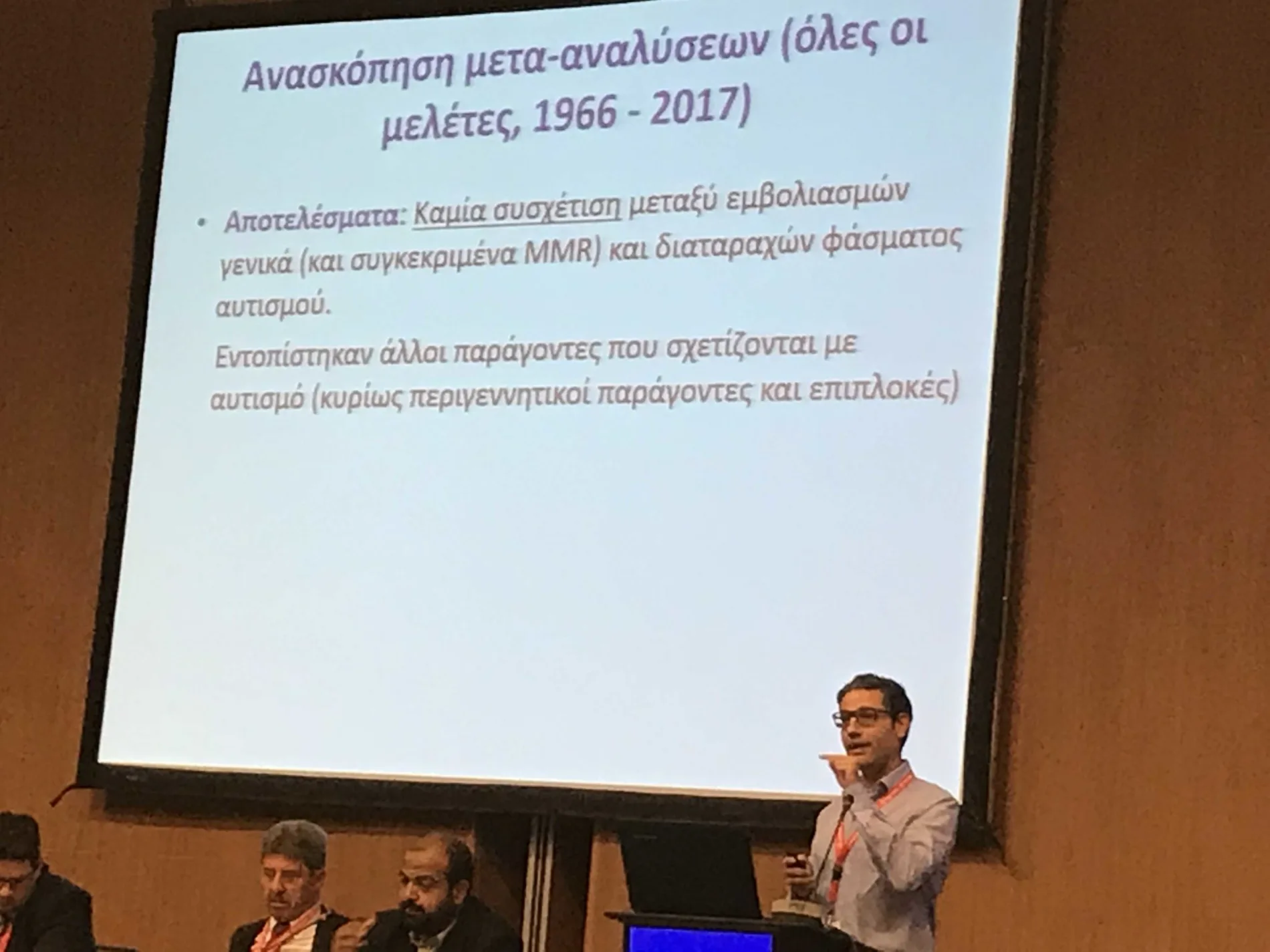Dr Alexandros Heraclides, Assistant Professor of Epidemiology and Public Health and Director of the Master of Public Health (MPH) programme, was one of the invited speakers at the 20th Paediatric Society of Cyprus Meeting, held in Nicosia on Friday 17 November, to speak on the scientific evidence behind the hypothesized link between the measles, mumps, and rubella (MMR) vaccine and autism in children. Following a thorough review of the literature, Dr Heraclides presented evidence suggesting no association between vaccination with the specific vaccine and the development of autism among children.
Dr Heraclides presented evidence from three large systematic reviews and meta-analyses: the first concentrating on the general side-effects of the specific vaccine, the second specifically focusing on the hypothetical link between the MMR vaccine and autism, and the third focusing on the environmental risk factors of autism. The three reviews encompassed every study that had investigated the association between MMR and autism over the past 45 years, for a total sample of more than 16 million children. All three reviews independently concluded that there is absolutely no scientific evidence linking the MMR vaccine to autism. In fact, the third review presented solid evidence for the first time environmental (i.e. non-genetic) determinants of autism, which did not include vaccination by MMR or any other vaccine.
In addition to the comprehensive literature review, Dr Heraclides presented and critically evaluated the first study, published in 1998, which investigated 12 children and allegedly identified a (false) association between MMR and autism. Dr Heraclides concluded that the specific study had serious methodological limitations and flaws. He presented findings from the formal investigation, performed by the British Medical Research Council, which concluded that the lead doctor responsible for the specific study was guilty of serious professional misconduct related to research ethics and financial conflicts of interest, and which ultimately led to his removal from the UK medical register. In addition, in 2010 the specific article was officially withdrawn from the scientific literature by The Lancet, the journal in which it had originally been published. Despite this, the specific article sparked a huge anti-vaccination movement globally, which, over the past few years, has also reached Cyprus.
Dr Heraclides concluded that the scientific fraud falsely linking vaccinations to autism is probably the most harmful hoax in history in terms of public health. The decrease in vaccine coverage, as observed in several developed countries, has resulted in an increase in previously eliminated infectious conditions, such as measles. Dr Heraclides urged the conference participants (primarily doctors and other health care professionals) to spread the message regarding the lack of association between vaccinations and autism in order prevent the phenomenon of vaccine hesitancy and to protect the population from potentially lethal infectious diseases.

